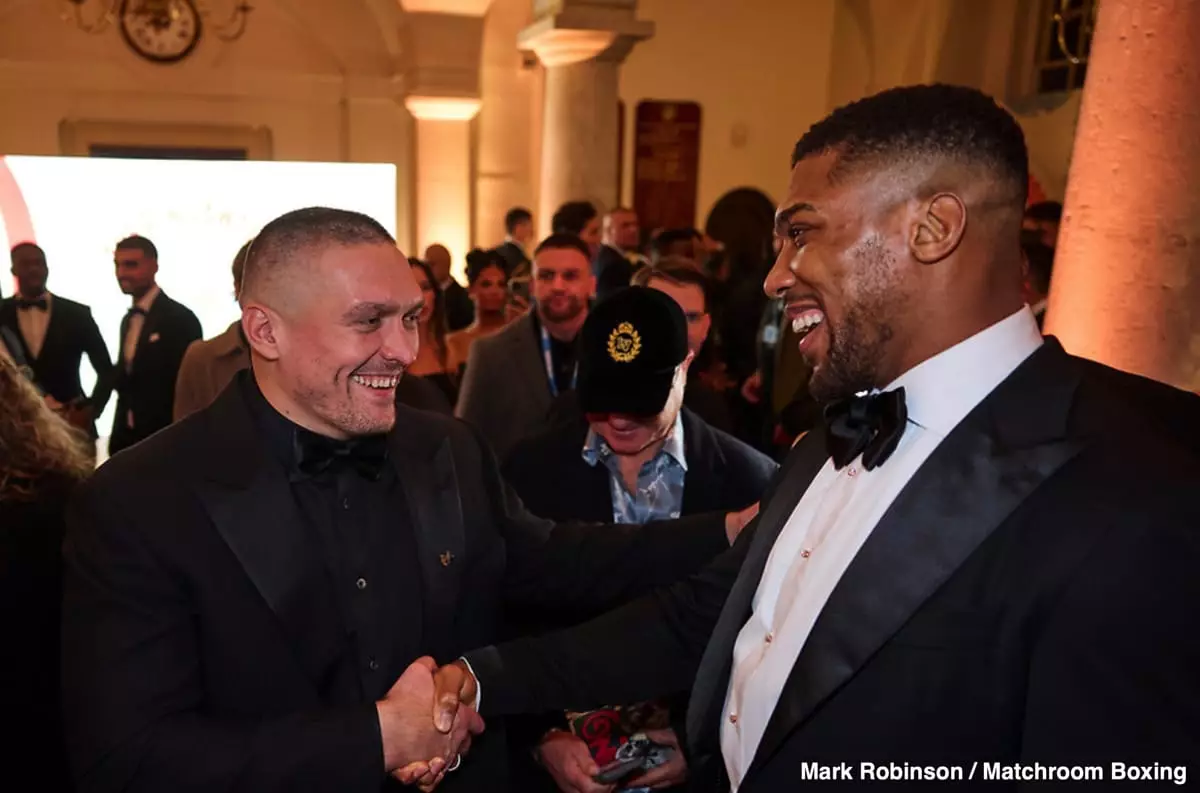The long-anticipated showdown between heavyweight champions Anthony Joshua and Tyson Fury has become emblematic of boxing’s unpredictable landscape. Fans have yearned for a clash that, if realized, could redefine both fighters’ legacies. However, the reality of their potential match slipping away creates a fog of disappointment that hangs over the sport, compounded by their recent struggles in the ring.
As supporters eagerly awaited the overdue bout, the fight’s postponement has led to a pervasive sense that neither fighter may want to revisit the disappointment of missing this opportunity. Each fighter has their own narrative, but together they paint a poignant picture of what could have been. For over a decade, Joshua and Fury have been positioned as the premier faces of British boxing, expected to clash for supremacy. Yet, both have fallen victim to confounding circumstances and fierce competition.
Joshua’s stumbles against Oleksandr Usyk and more recently against Daniel Dubois have left fans questioning his form and purpose. Similarly, Fury’s unexpected retirement following his disappointing performance against Usyk raises questions about his mental fortitude. With growing whispers that the allure of their matchup is fading, the stakes continue to rise. Supporters can’t help but dread the grim legacy that might be cemented if they never meet in the ring.
Both fighters’ losses delve deeper than mere statistics—they underscore a human element that often gets overshadowed in discussions surrounding championships and titles. Tyson Fury’s abrupt retirement sends shockwaves through the boxing community. It’s essential to recognize how a significant defeat can shatter an athlete’s confidence. Eddie Hearn’s observations indicate that having only recently experienced a loss, Fury may now grapple with internal demons that challenge his passion for the sport.
Fury’s struggles with mental health have been well-documented throughout his career. The recent retirement could be perceived as a protective instinct, a means of conserving a legacy that is already nuanced with turmoil. However, many speculate about the motives behind it. Hearn asserts that Fury might be maneuvering for an enticing financial offer, specifically a showdown with Joshua. This raises an ethical question: how should fans respond to the reality that fighters might prioritize monetary gain over their legacies?
Financially, Tyson Fury appears to be comfortably situated. With an estimated net worth nearing $200 million, one might wonder why he would still crave a return to the ring. Yet, the yearning for challenges and competition often transcends external metrics of wealth. Could it be that at this juncture in his career, Fury is evaluating his place within the sport? Decisions made in the heat of competition are frequently influenced by monetary incentives and personal satisfaction.
For Joshua, the contrasting path also centers on the pursuit of redemption. After suffering multiple defeats, it seems that any opportunity to reclaim his status would be significantly tied to his ability to face Fury. Hearn’s insight hints at the importance of this rivalry not just as a financial opportunity, but as a critical pivot point for Joshua’s career moving forward.
In the wake of recent events, the implications of Fury’s retirement extend beyond him; they reverberate throughout the boxing world. Fans are left to wonder what will come next for two of boxing’s most prominent figures. If Joshua has truly regained his determination and is ready for a comeback, the anticipation of a Fury fight could anchor narratives moving forward—but only if the cards fall in their favor.
The boxing community finds itself at a nexus; heavyweight boxing stands at the brink of irrelevance if these titans cannot come to terms with each other. For both fighters, acknowledging the fragile nature of their careers amidst the weight of legacy can reshape their narratives. Whether they can pull themselves from this tumultuous chapter to script a new fight remains to be seen, but the time for action is now, lest they forever dwell amidst the shadow of ‘what ifs’.

